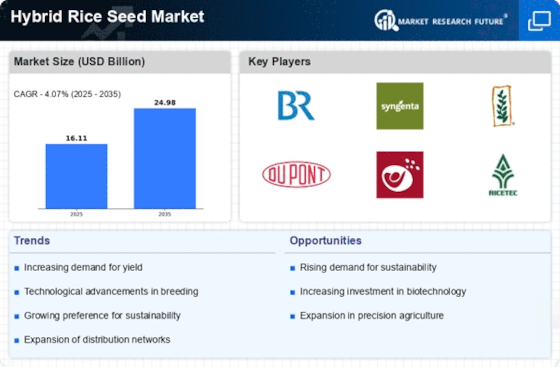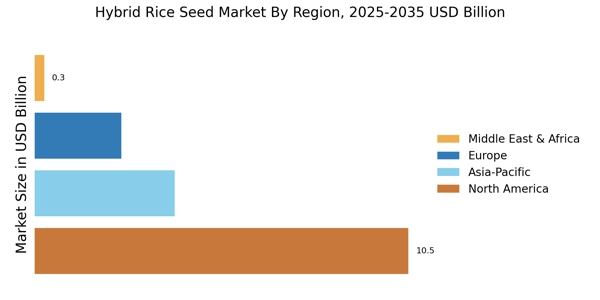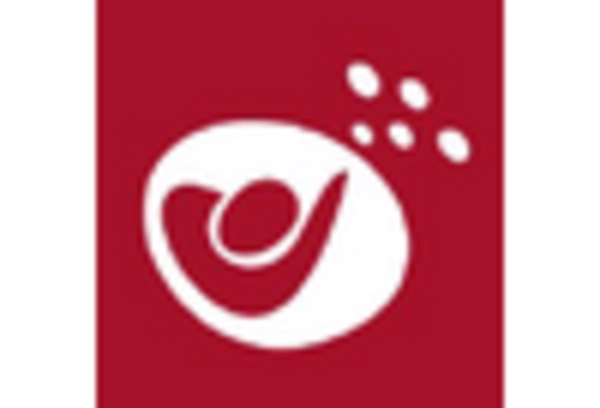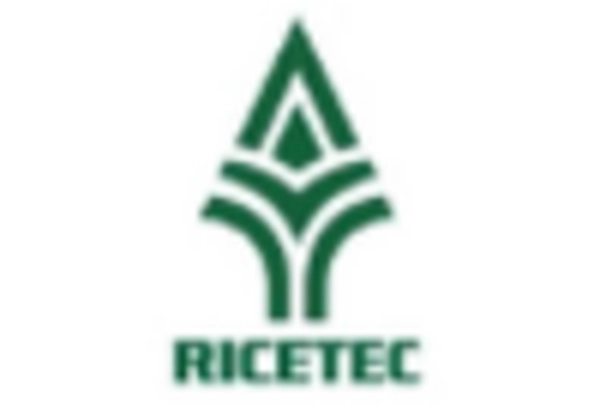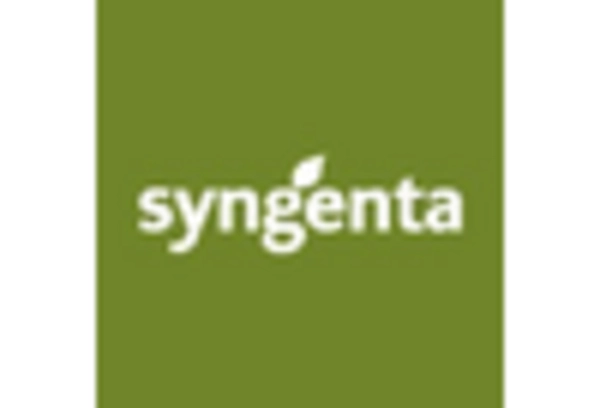Government Initiatives and Support
Government initiatives play a crucial role in shaping the Hybrid Rice Seed Market. Various countries have implemented policies aimed at promoting hybrid rice cultivation through subsidies, research funding, and extension services. For instance, several governments have established programs to support farmers in transitioning to hybrid varieties, which often include financial incentives and training. This support not only encourages farmers to adopt hybrid seeds but also fosters innovation in seed development. As a result, the Hybrid Rice Seed Market benefits from increased investment and research, leading to the introduction of improved seed varieties that cater to diverse climatic conditions and consumer preferences. Such initiatives are likely to enhance the overall productivity and sustainability of rice farming.
Growing Global Population and Urbanization
The Hybrid Rice Seed Market is significantly impacted by the growing global population and urbanization trends. As urban areas expand, the demand for rice as a staple food continues to rise. This increasing demand necessitates the adoption of more efficient agricultural practices, including the use of hybrid rice seeds. With projections indicating that the world population could reach nearly 9.7 billion by 2050, the pressure on food production systems intensifies. Hybrid rice varieties, known for their higher yields, are likely to play a pivotal role in meeting this demand. Consequently, the Hybrid Rice Seed Market is expected to experience robust growth as farmers seek to maximize production to feed the burgeoning population.
Increasing Demand for High-Yield Varieties
The Hybrid Rice Seed Market experiences a notable surge in demand for high-yield rice varieties. This demand is primarily driven by the need to enhance food security in various regions. As populations grow, the pressure on agricultural systems intensifies, necessitating the adoption of hybrid seeds that can produce more grain per hectare. Reports indicate that hybrid rice varieties can yield up to 20-30% more than traditional varieties, making them an attractive option for farmers. This trend is likely to continue as governments and organizations promote the use of hybrid seeds to meet the increasing food requirements. Consequently, the Hybrid Rice Seed Market is poised for growth as stakeholders recognize the potential of these seeds to address food scarcity challenges.
Rising Awareness of Sustainable Agriculture
The Hybrid Rice Seed Market is witnessing a shift towards sustainable agricultural practices. As environmental concerns grow, farmers and consumers alike are becoming more aware of the benefits of sustainable farming. Hybrid rice seeds, which often require fewer inputs such as water and fertilizers, align with these sustainable practices. Research indicates that hybrid varieties can be more resilient to climate change, thus reducing the risk of crop failure. This awareness is prompting farmers to consider hybrid seeds as a viable option for sustainable production. Consequently, the Hybrid Rice Seed Market is likely to expand as more stakeholders recognize the importance of sustainability in agriculture and the role of hybrid seeds in achieving these goals.
Technological Advancements in Seed Development
Technological advancements are significantly influencing the Hybrid Rice Seed Market. Innovations in biotechnology and genetic engineering have led to the development of hybrid rice varieties that are not only high-yielding but also resistant to pests and diseases. These advancements enable breeders to create seeds that can thrive in various environmental conditions, thereby enhancing their appeal to farmers. The integration of precision agriculture technologies further supports the effective use of hybrid seeds, allowing for optimized planting and resource management. As these technologies continue to evolve, the Hybrid Rice Seed Market is expected to benefit from increased efficiency and productivity, making hybrid seeds an attractive choice for modern agriculture.


